Planting Sustainability
Terms such as “sustainability,” “eco-friendly” and, of course, “recyclable” have been appearing with growing consistency throughout the news and in advertisements, but what ideas are behind these terms, and why do so many people think these subjects are important? But wait! Isn’t this article supposed to be about pots and planters for your garden center? How are these ideas all connected?
Simply Sustainable
Lawn & Garden Retailer defines sustainability as “meeting the needs of the present without compromising the ability of future generations to meet their own needs while enhancing the health of ecosystems. Every action must be able to be repeated over and over, without impairing the ability of future generations to provide for themselves.” Ensuring that natural resources are not depleted is one of the major issues involved in this concept. There has been growing awareness of the limited nature of natural resources upon which modern societies depend for survival. Finding an alternative fuel source to replace or at least lessen our dependence on oil and other fossil fuels is thus receiving great attention. Involved with this concept are both ecological issues (in that the oil supply is decreasing and damage is done to the environment through oil drilling) and economic issues (oil is becoming more expensive, raising costs of products that either incorporate oil in their production or depend upon oil-fueled transport).
The Environmental Protection Agency and other organizations have been studying ways to replace plastic products and to help create sustainable practices that will not impede competitive business and technology. Did you know that plastics make up about 21 percent of municipal garbage volume, according to “Joanne and Stefanie’s Plastics Web Site” (dwb.unl.edu)? Plastic production uses a significant amount of petroleum. Both of these issues have caused many retailers and producers to begin looking for more innovative production methods. This is not to say that plastics must be completely replaced; rather, when possible, alternative materials should be used. There has also been research aimed at making plastics more easily recyclable and/or biodegradable, but more work needs to be done before these plastic varieties will be as versatile as the currently popular resins, according to PackagingToday’s website, www.packagingtoday.com.
Looking to the Future
Consumers are becoming more and more aware of sustainability’s importance. Jacqueline D’Elia, founder of Olive Barn, explained how her company has been working to offer customers more choices of organic and eco-friendly products. Olive Barn is a garden and retail store based in Houston and is also an online retailer.
I was first attracted to Olive Barn’s website, www.olivebarn.com, by the offer of GreenPots, which are made from rice hulls. According to D’Elia, these are durable, waterproof products that have an organic look and should “last up to five years under normal use.” Because they are made from natural binding agents and grain husks, they are completely sustainable and natural. Customers can just compost them and needn’t worry about throwing them away after use. There are a variety of attractive colors, shapes and sizes available, and the pots should be freeze-resistant.
D’Elia sees such products as a forward-looking enterprise, and in addition to offering eco-friendly products, the company has been working to make its shipping methods more sustainable. Instead of using traditional Styrofoam shipping peanuts, Olive Barn uses cornstarch peanuts. These look and act like the nonrecyclable Styrofoam version, but they’ll dissolve in water. Customers can simply spray them with a hose and they will dissolve, saving the bother of disposal associated with regular peanuts and also being environmentally conscious by not adding to garbage waste. Recycling the incoming cardboard from shipments is “one more way of trying to reduce our contribution to the problem,” D’Elia says.
Recycled Doesn’t Mean Rough
Specialty Living, www.specialtyliving.com, is an exclusively online retail company that has been working to become more sustainable. Sonya Neblett, marketing coordinator, hopes that within three to four months the company will have achieved the goal of being completely eco-friendly, quite a remarkable feat. Neblett says that she saw this trend developing in the past two years and sees sustainability as an important company goal. Additionally, “there is a market and demand” for sustainable products, she says. Some of the more popular products that Specialty Living carries are their Wine Barrel products. These are made from recycled wood that was used in wine barrels, which creates unique pieces. This is a sustainable product in that it reuses wood and prevents the further harm that can be caused from logging. Specialty Living’s eco-friendly products are upscale and decorative; just because a product is made from sustainable materials doesn’t mean that it has to look unfinished or roughly made. The company works to make living more enjoyable, and this will be helped by customers’ knowledge that the products they buy didn’t harm the environment during production.
Education and Interest
Education is a perpetually recurring theme in businesses and is very important when your company carries sustainable products. Customers will want to know what makes these products unique. Olive Barn offers an e-mail newsletter to customers, which explains and introduces new ideas and educates customers as to why sustainable products are important. The newsletter also offers customers ideas of ways that they can make other sustainable changes in their lives. D’Elia says that customers love to hear about new things, and the newsletter is a great way to keep them informed. Customers are often too busy to look for such ideas on their own but appreciate the information when presented in a user-friendly, interesting manner. Neblett has noticed that the group of customers interested in sustainable products has been growing and demand continues to grow.
There are a variety of sustainable pots and planters available. Another company that carries sustainable pots is Oregon-based Al’s Garden Center. Among its three garden and nursery centers, Al’s works to help customers be successful in gardening with high-quality products. In 2007, they began carrying Biopots. These pots “look like any other thick plastic pot but are actually made from fibrous wastes, such as bamboo, straw and rice husks,” according to the website (www.als-gardencenter.com). These pots can be planted outside or indoors and are lightweight and waterproof. They are also offered in a variety of colors and are 100 percent biodegradable.
Every Little Bit Counts
It’s not too late to dive in! The number of sustainable products is quickly expanding, as retailers realize that customers like to feel they can make a positive impact on the environment. And while it may seem like a small contribution, “every little part you do makes a difference,” Neblett says. She thinks sustainable products are “better for the environment and employees; [they have] a circular effect and there’s no one it leaves out.” Olive Barn has worked to find what there is demand for and how the business can change in positive ways. D’Elia says that part of Olive Barn’s goal is “to inspire people.” And if sustainable, eco-friendly products aren’t inspiring, I don’t know what is!

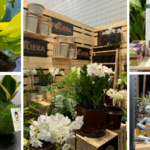
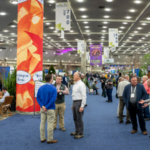



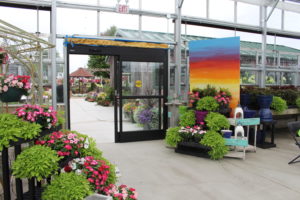
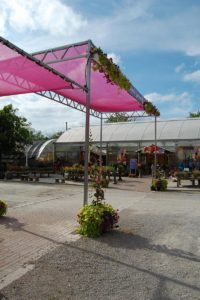
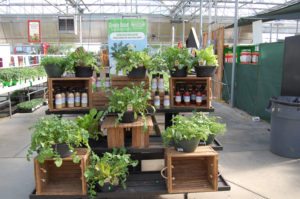
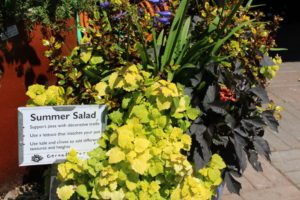
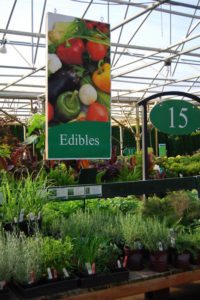
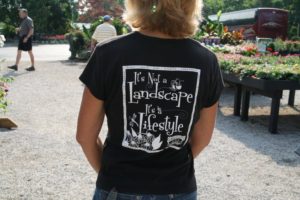
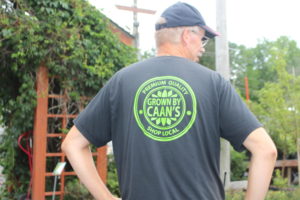
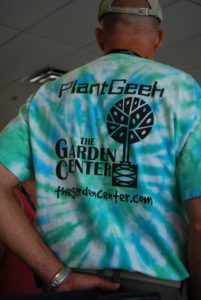
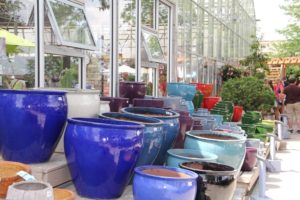
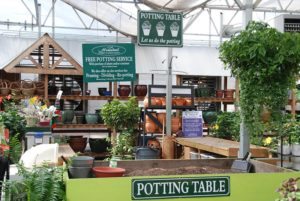
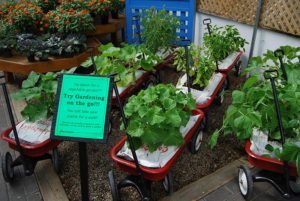
 Videos
Videos





